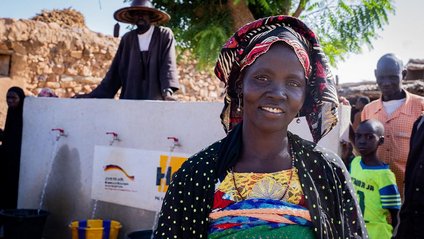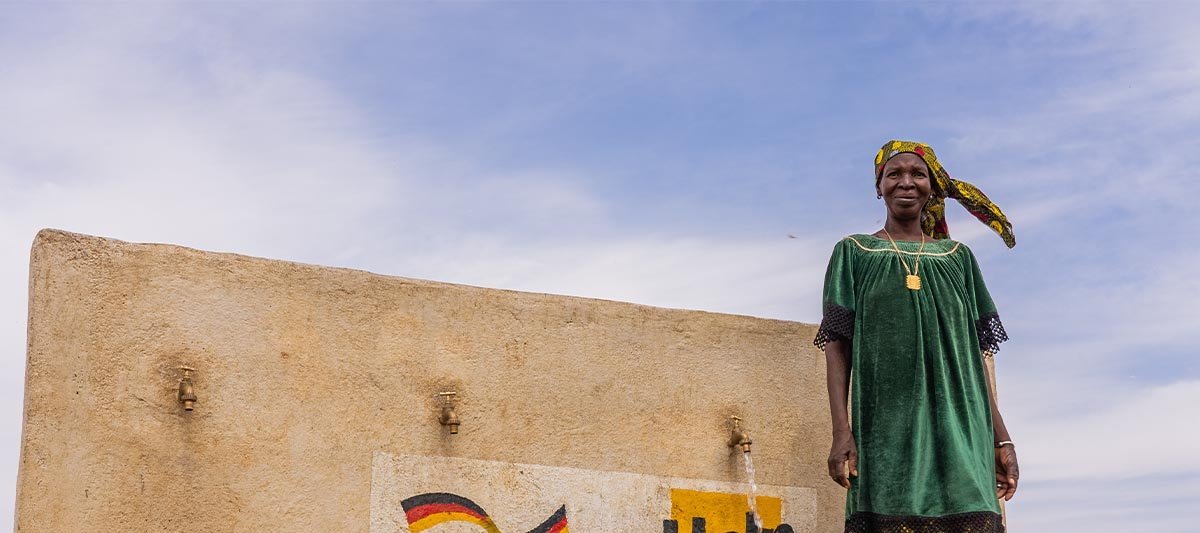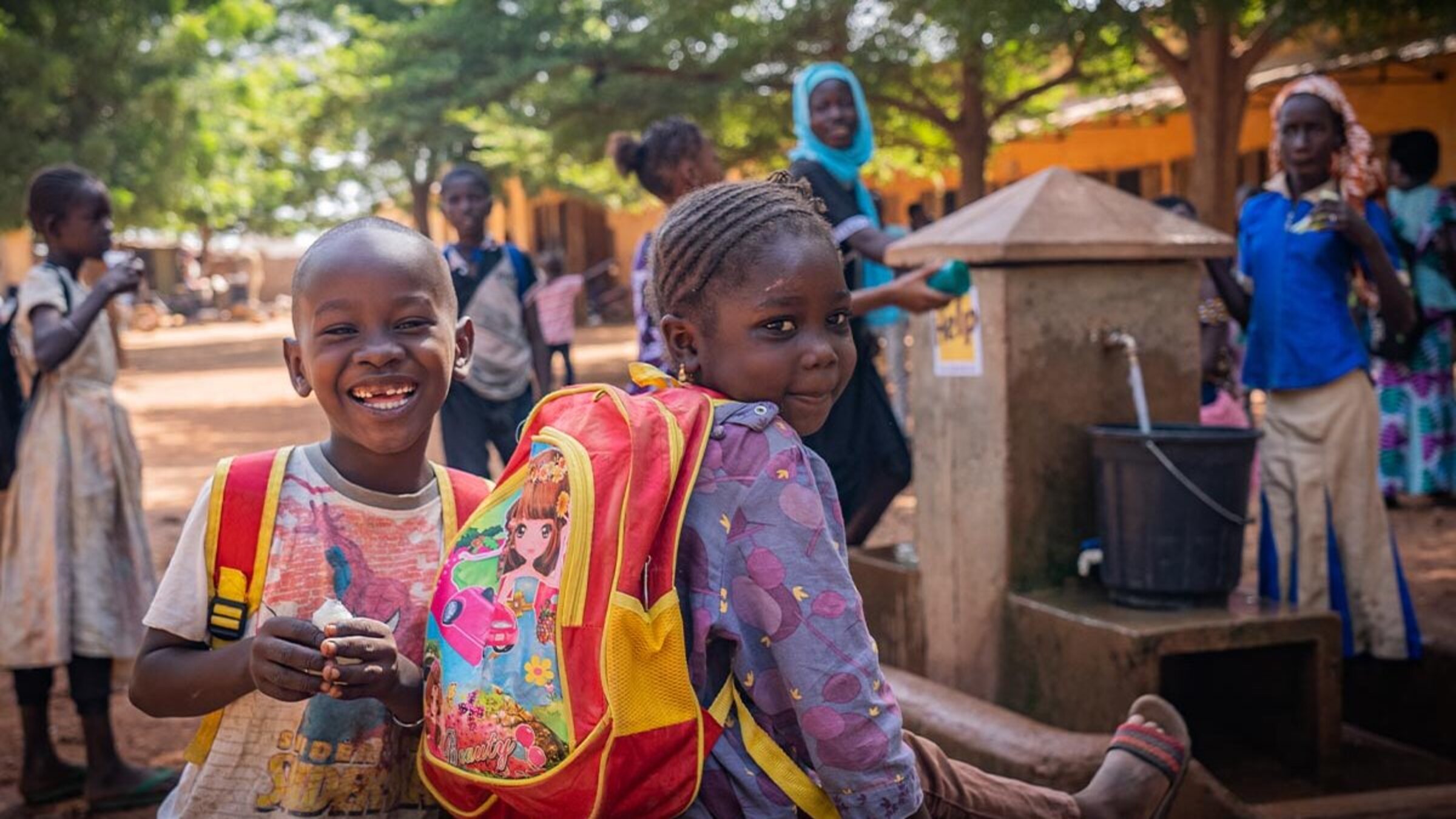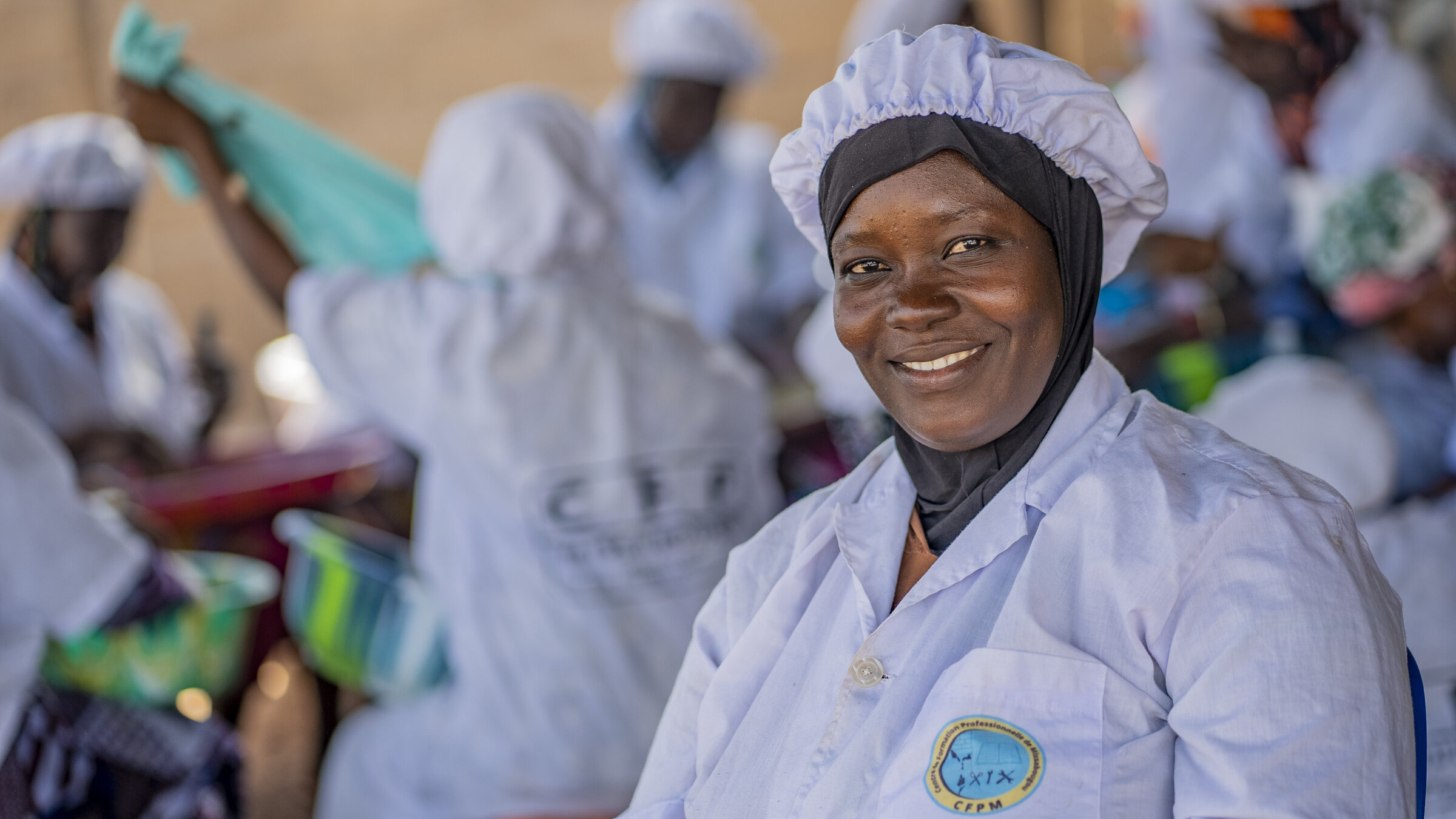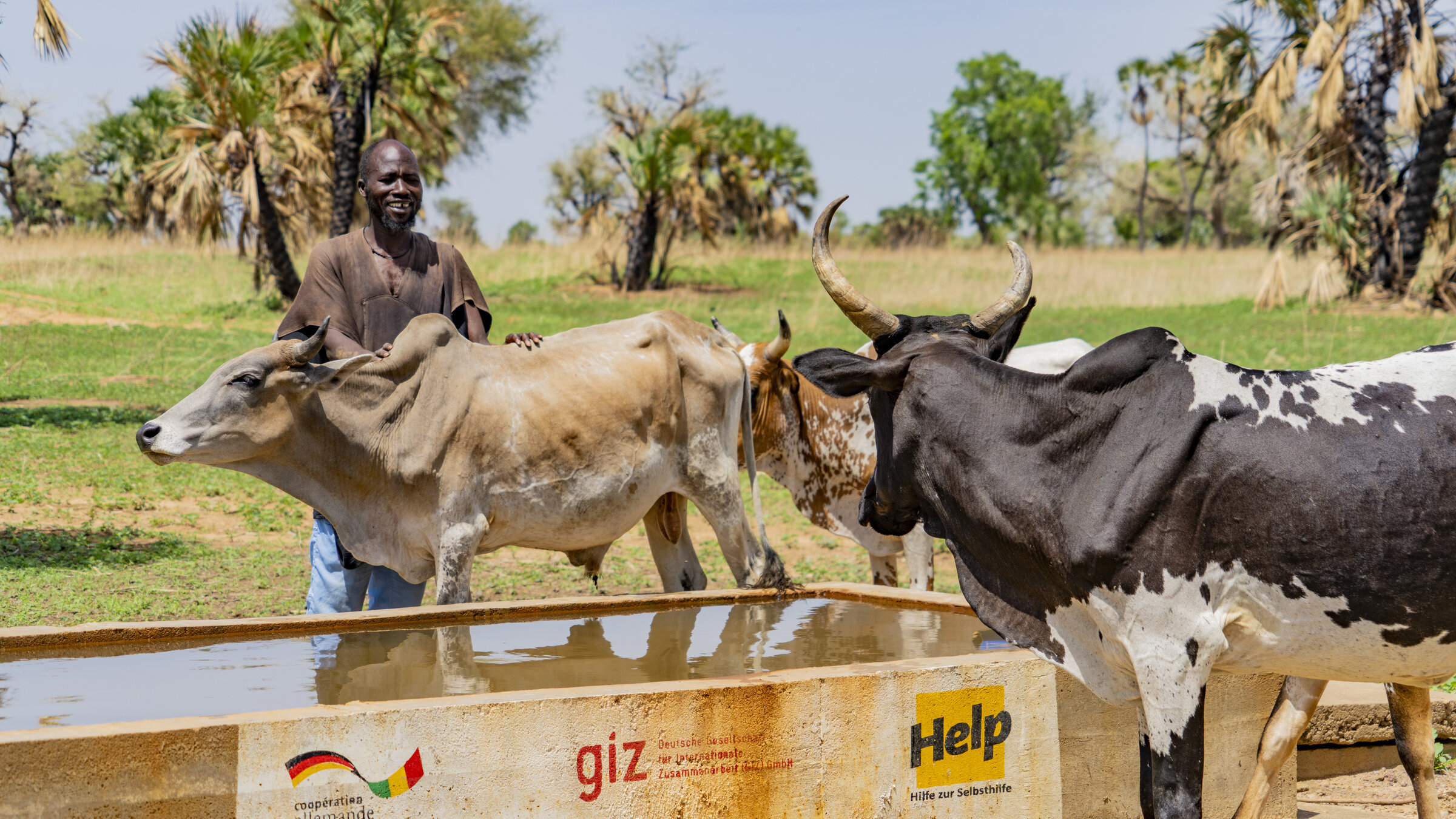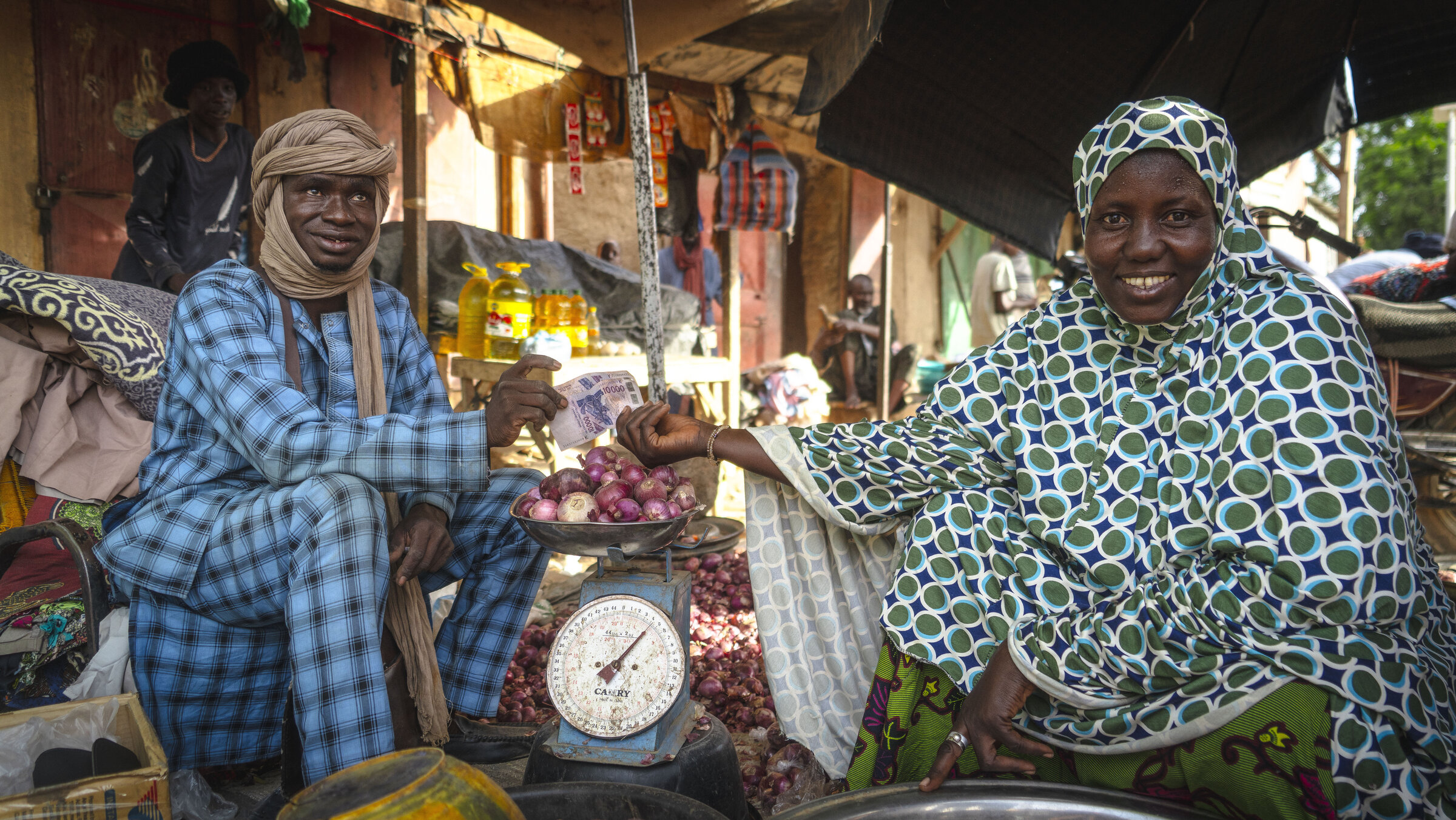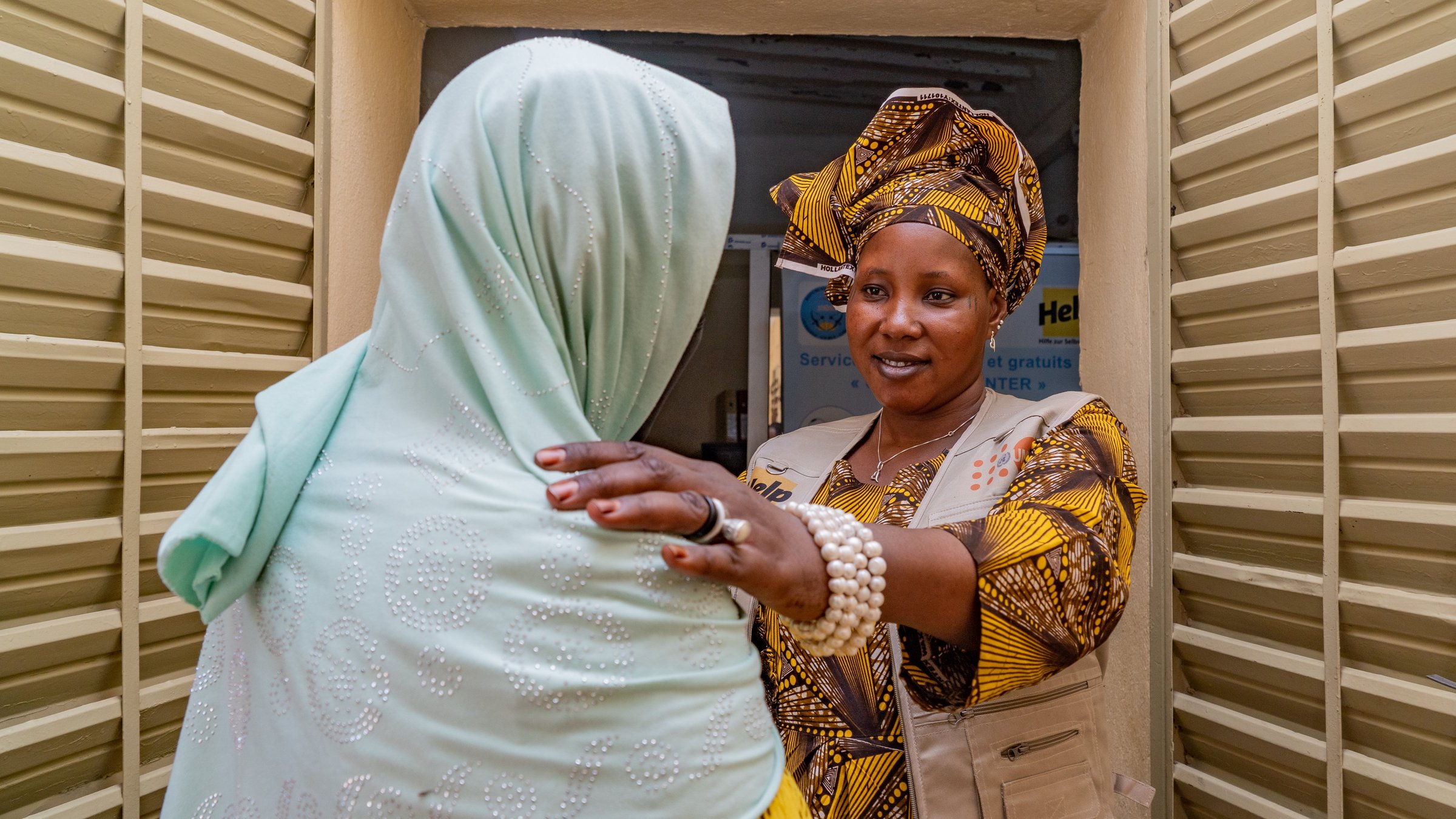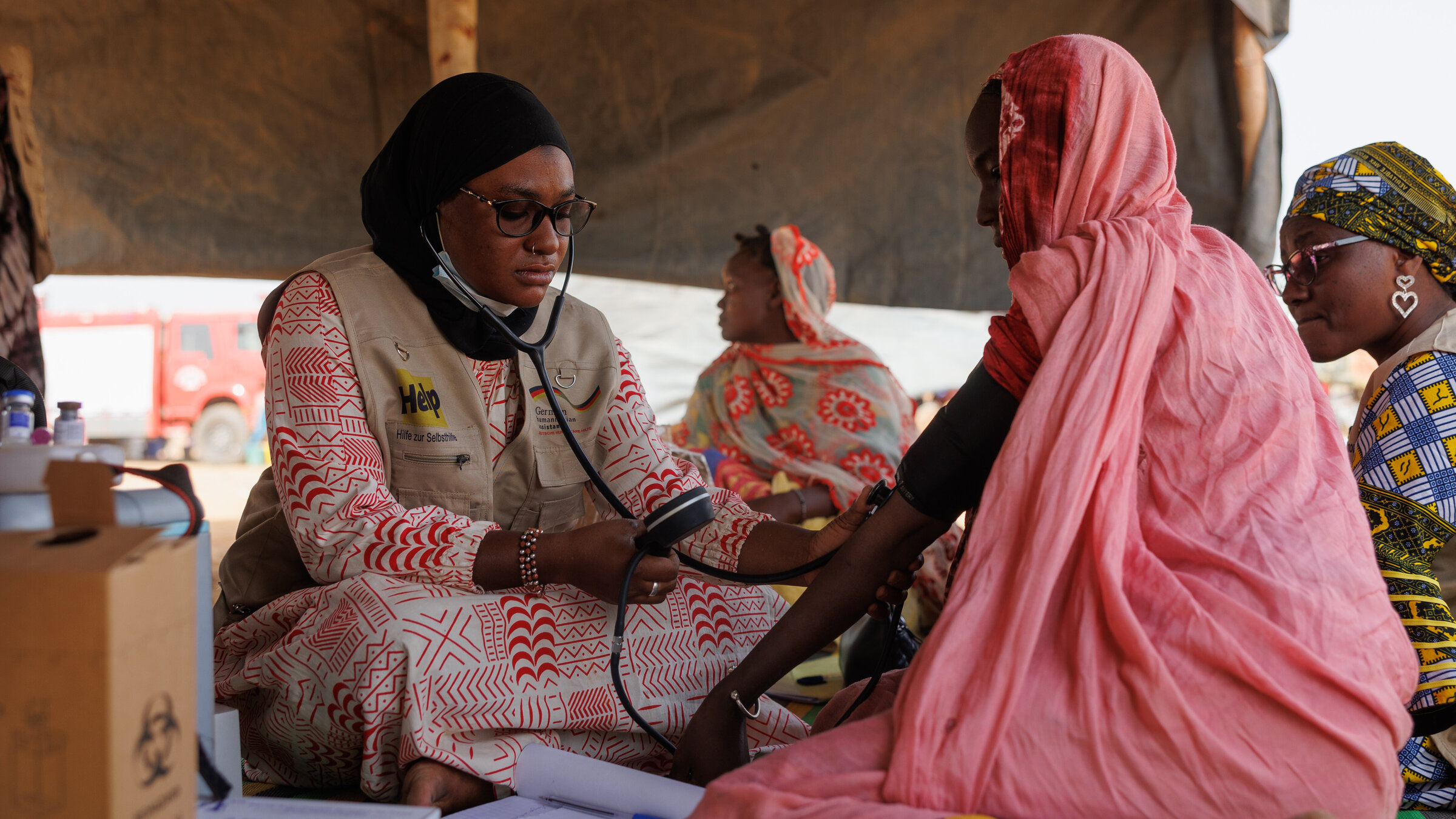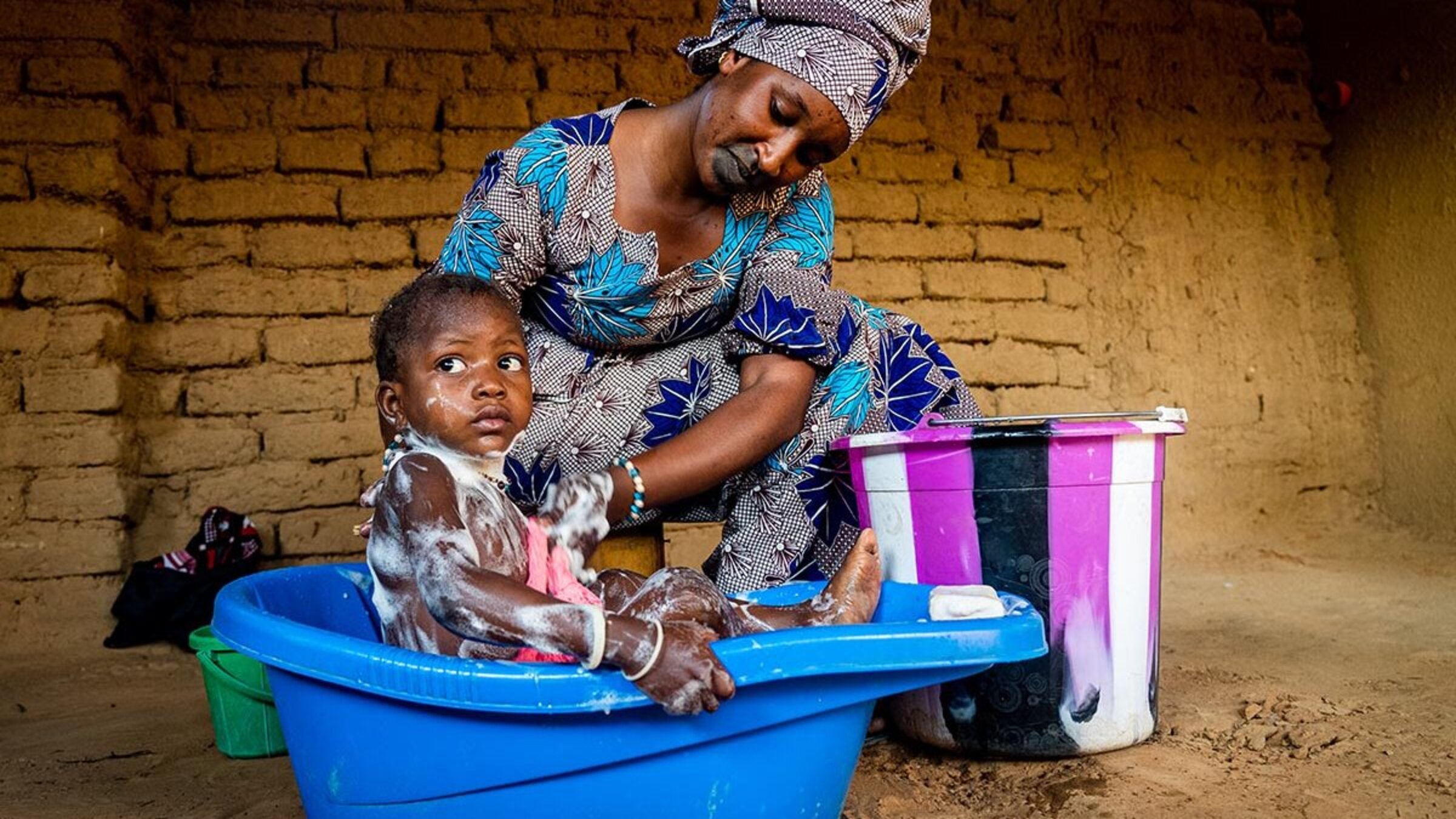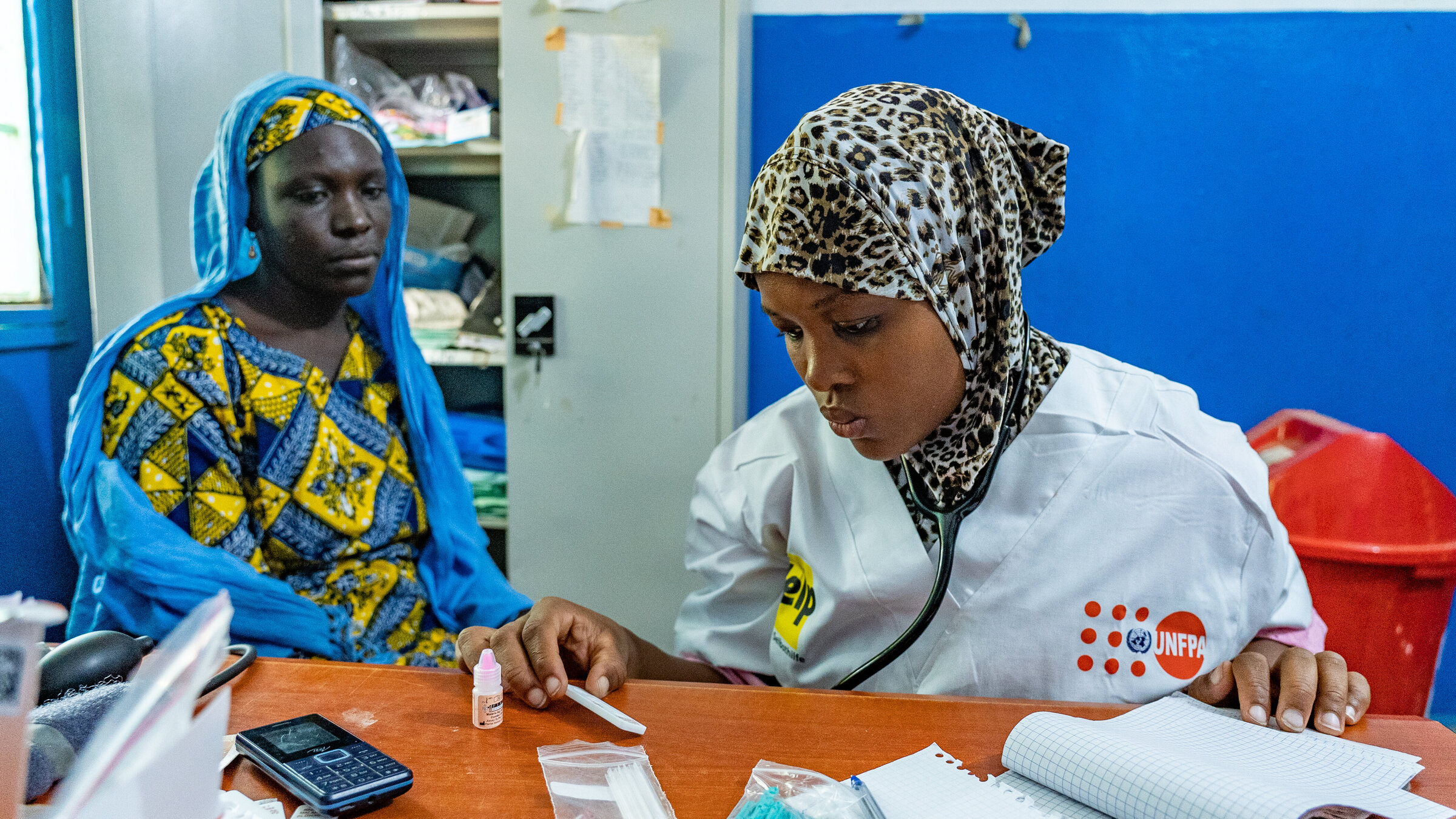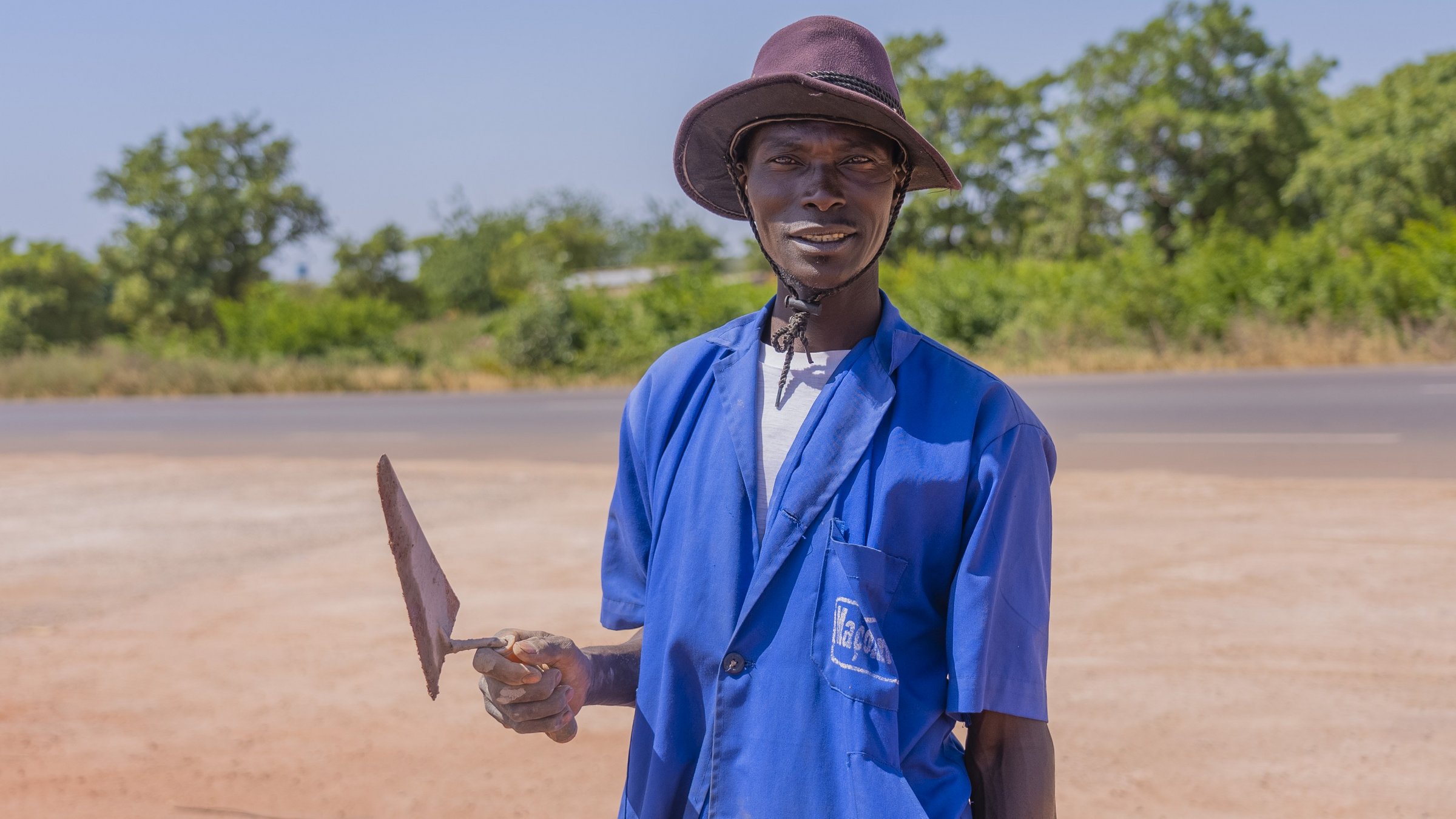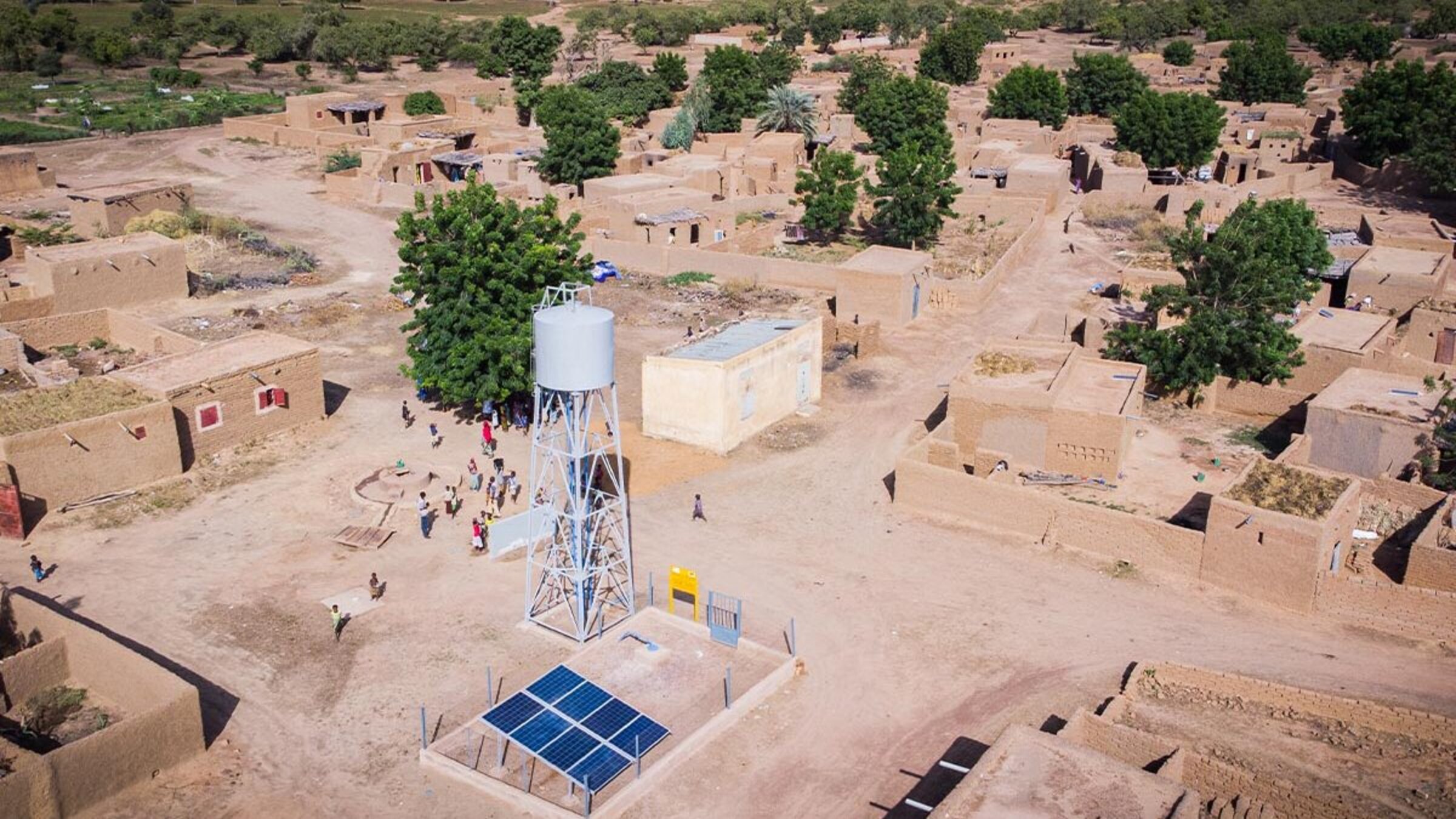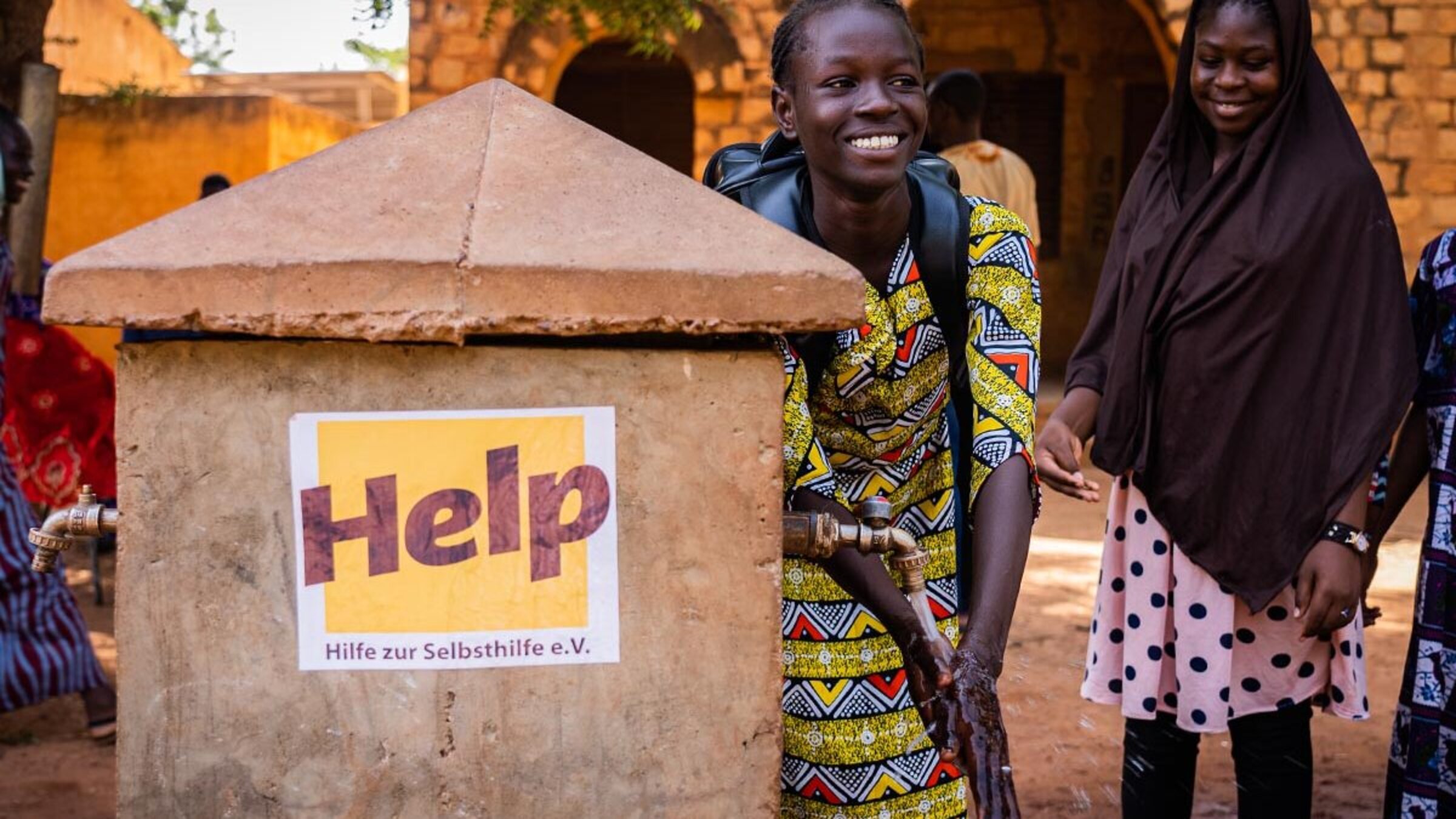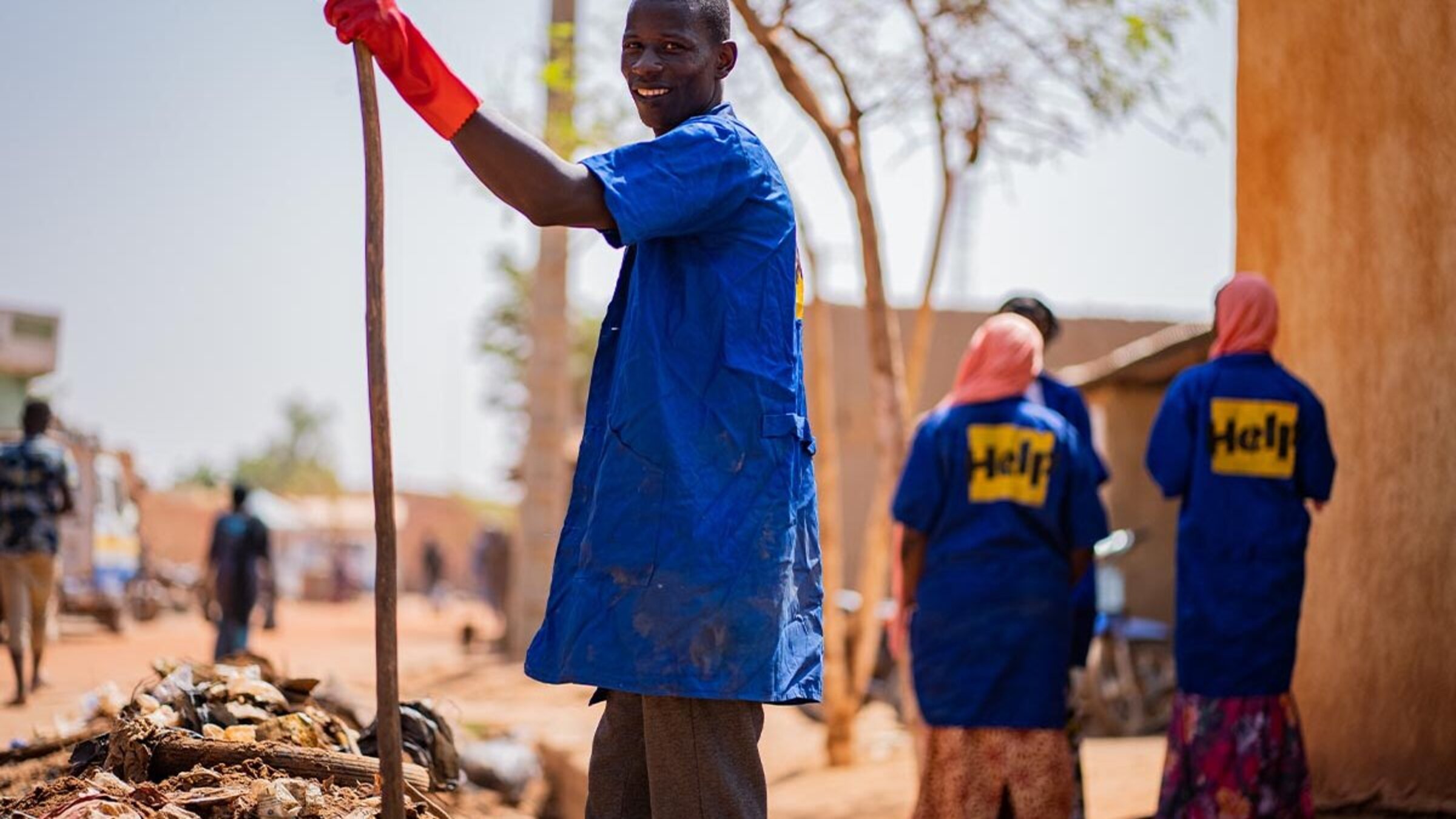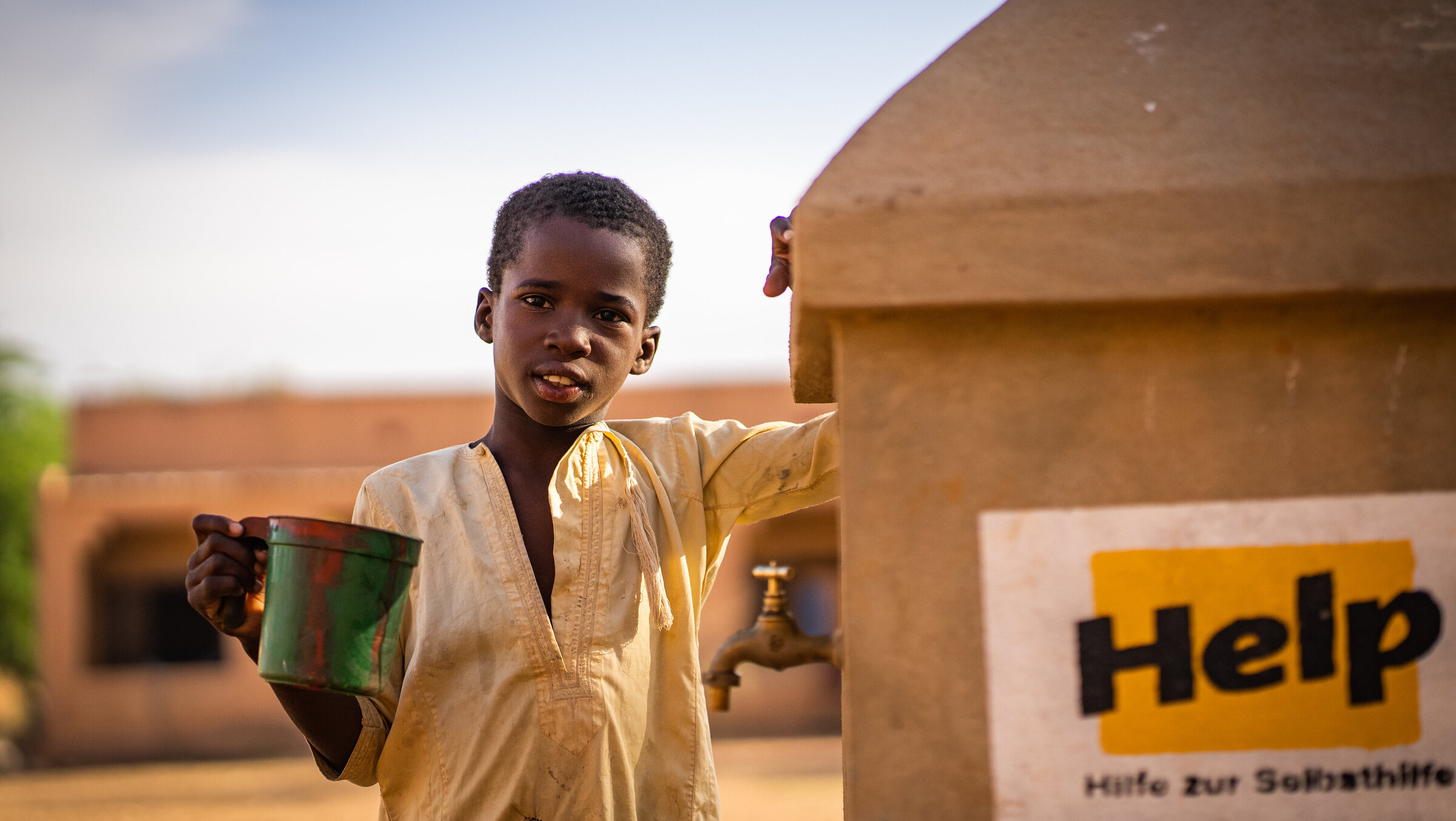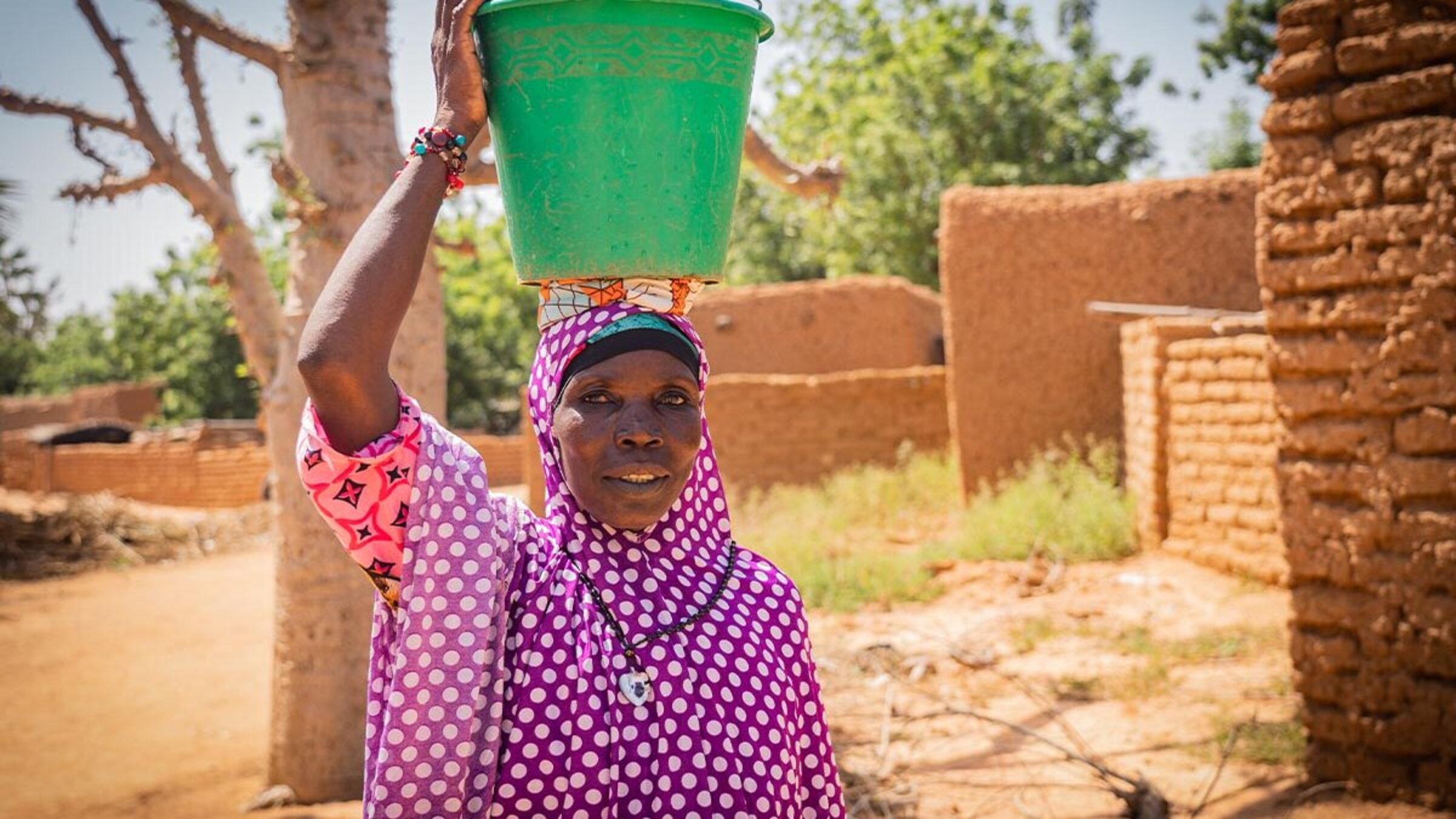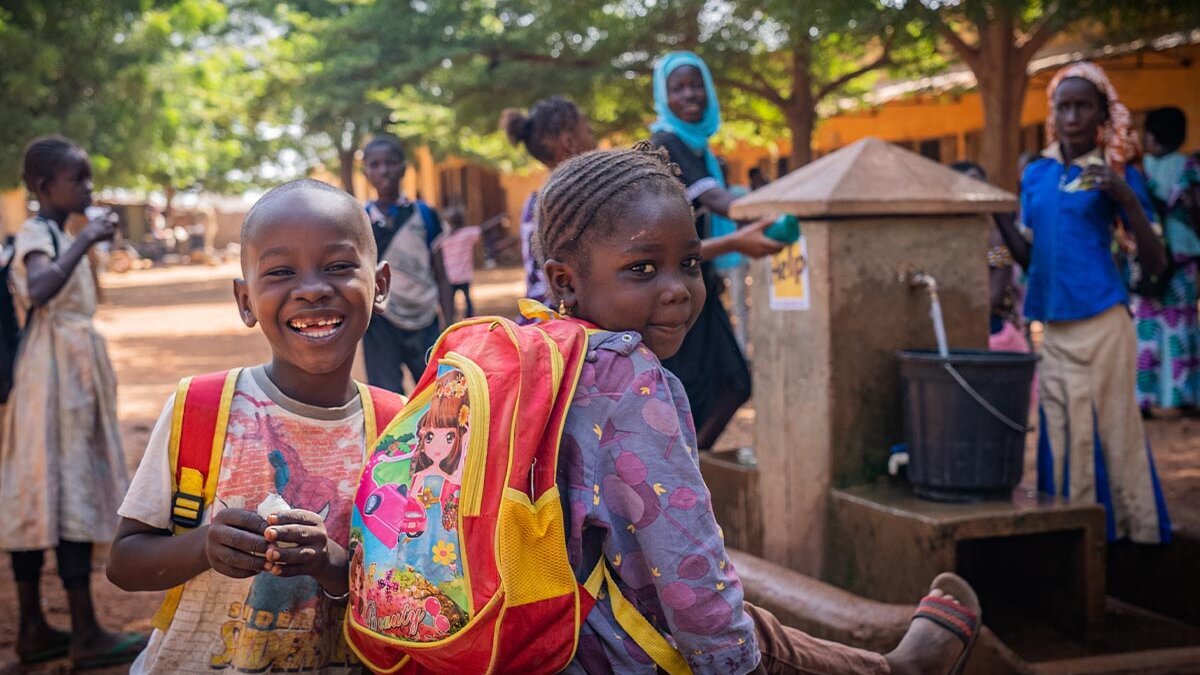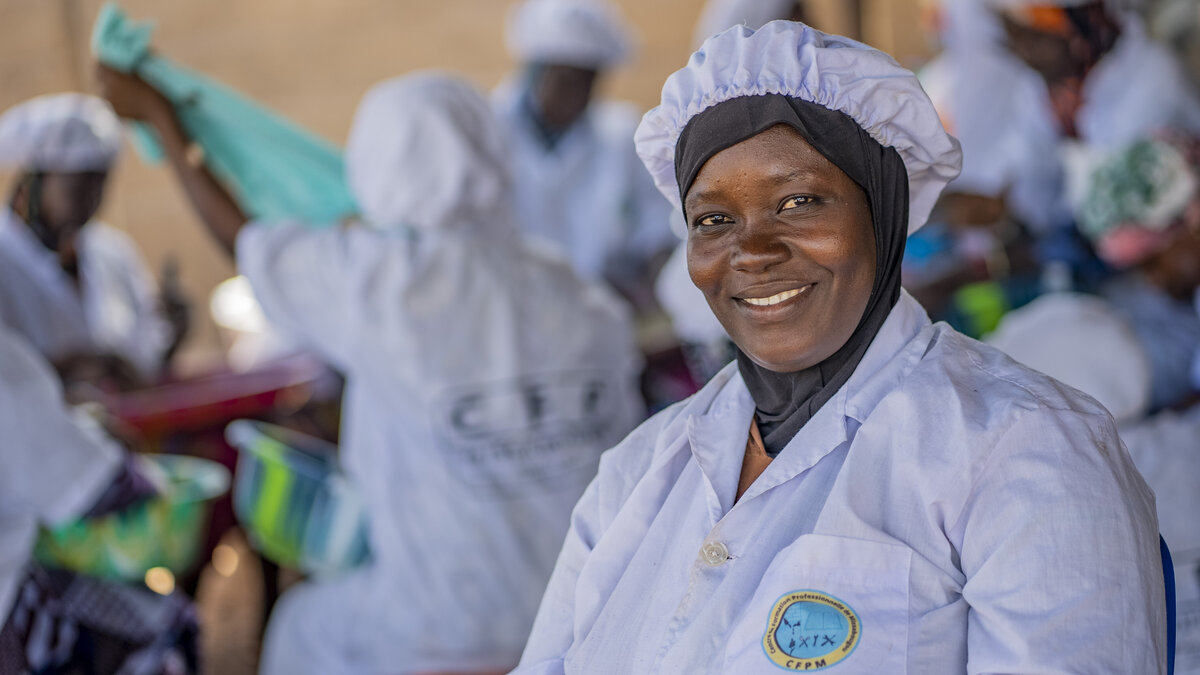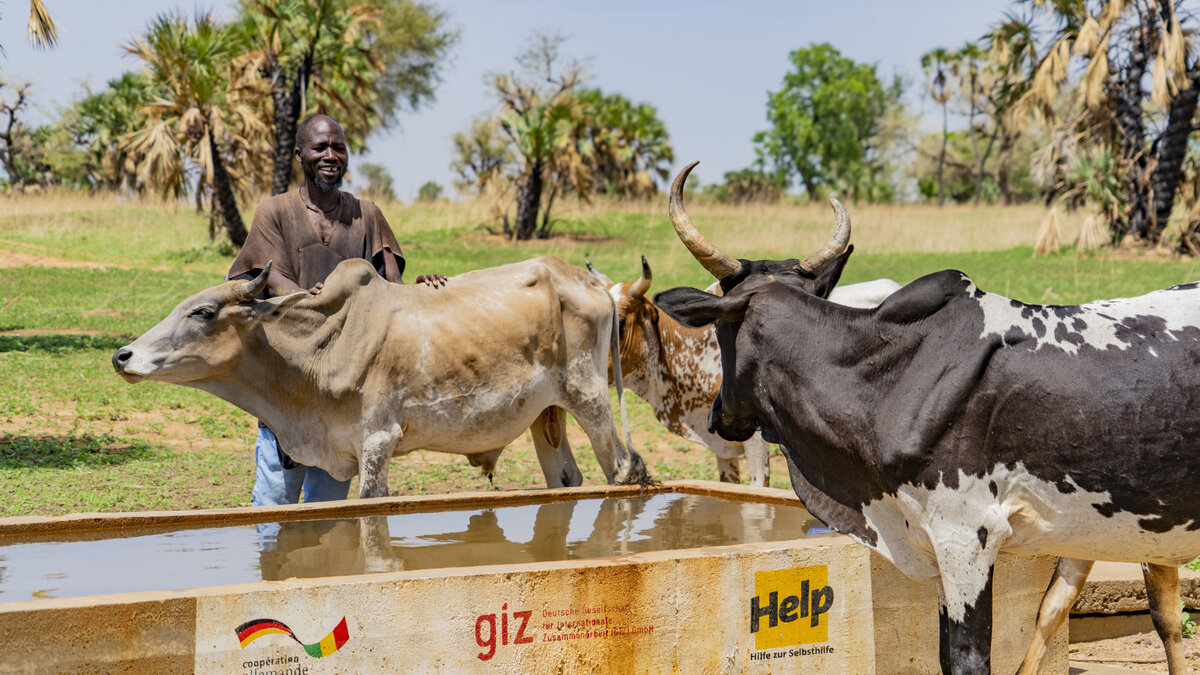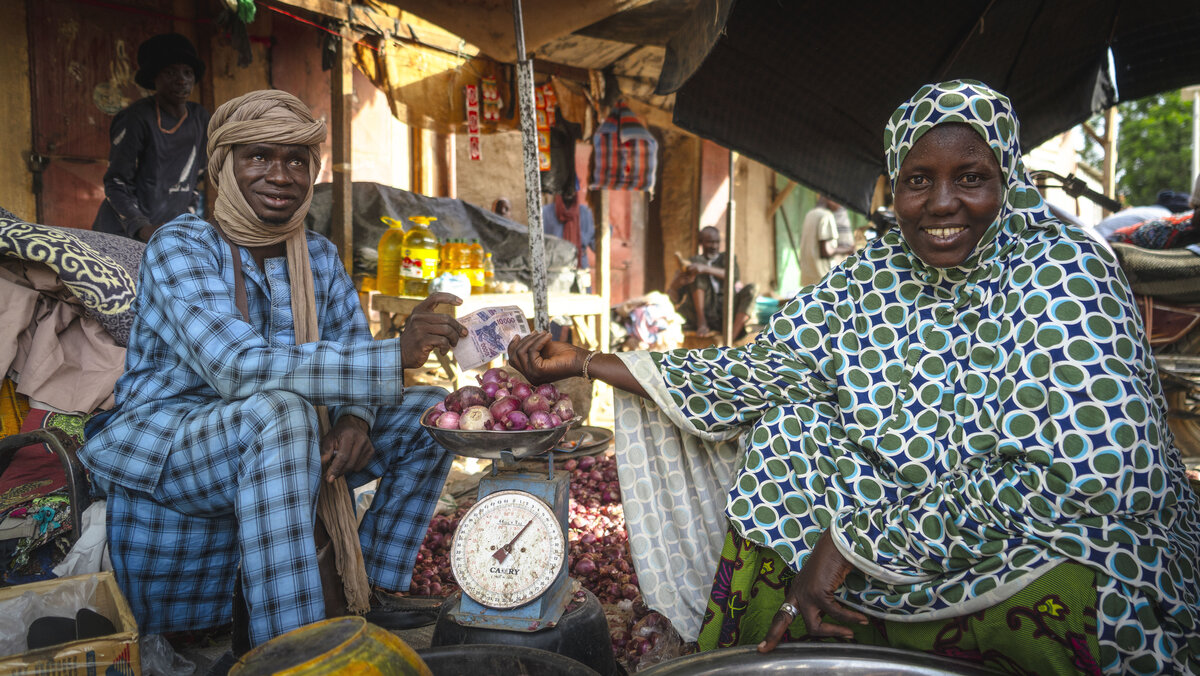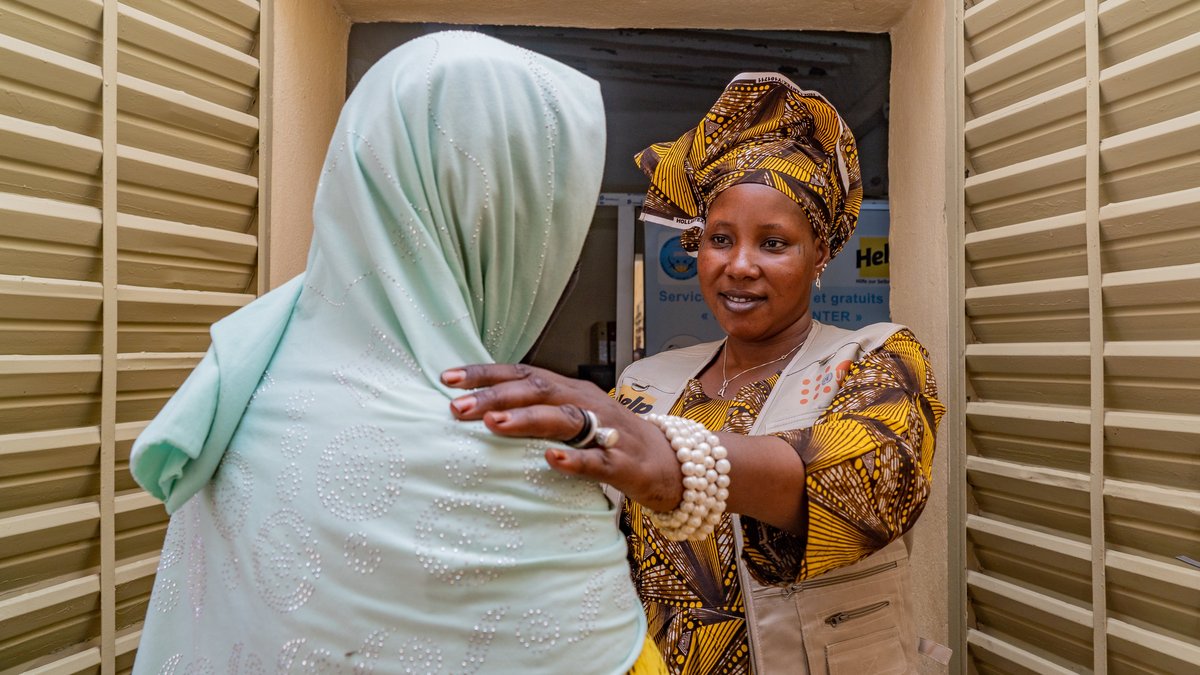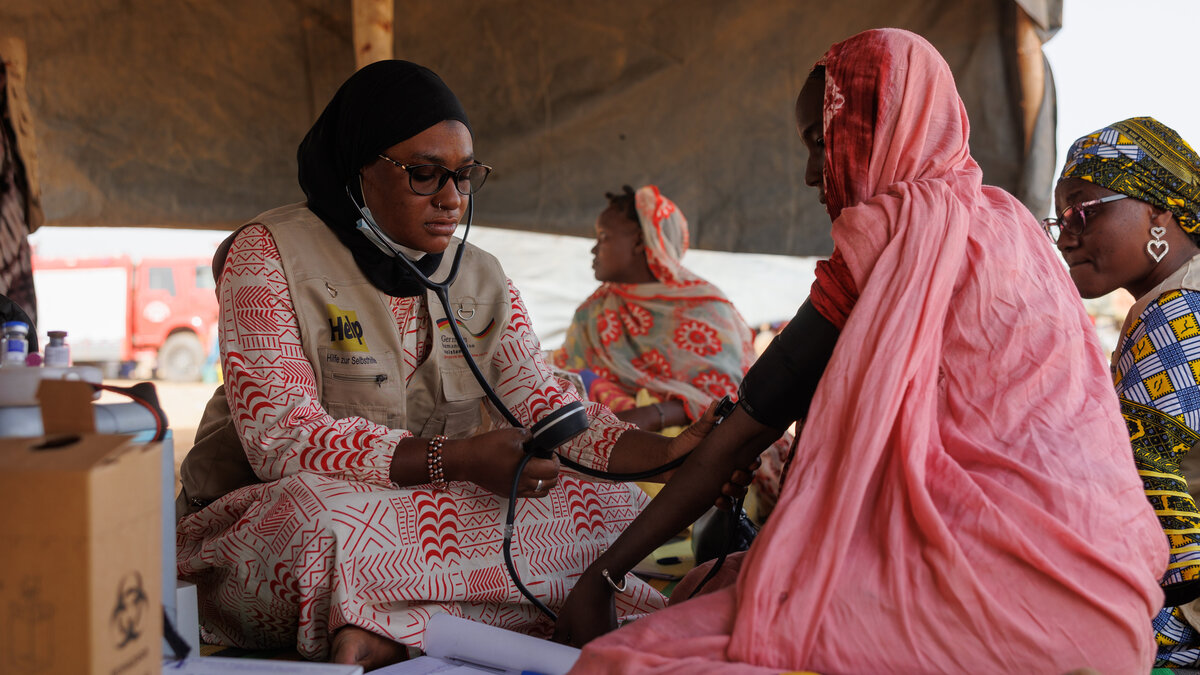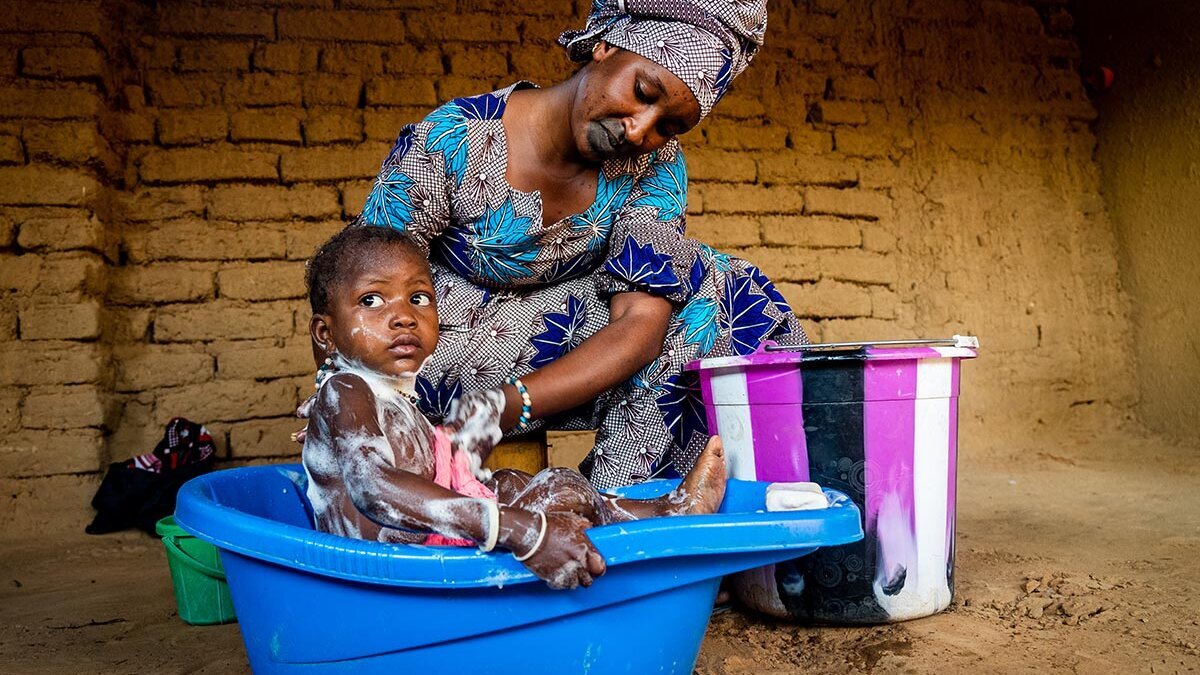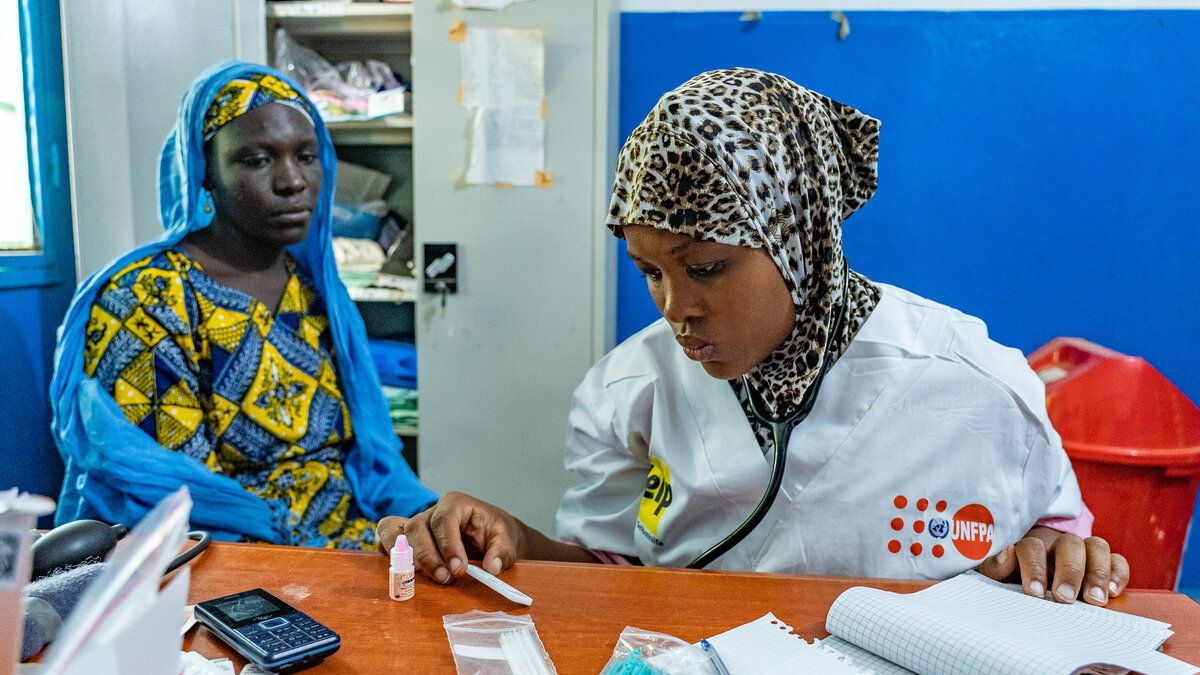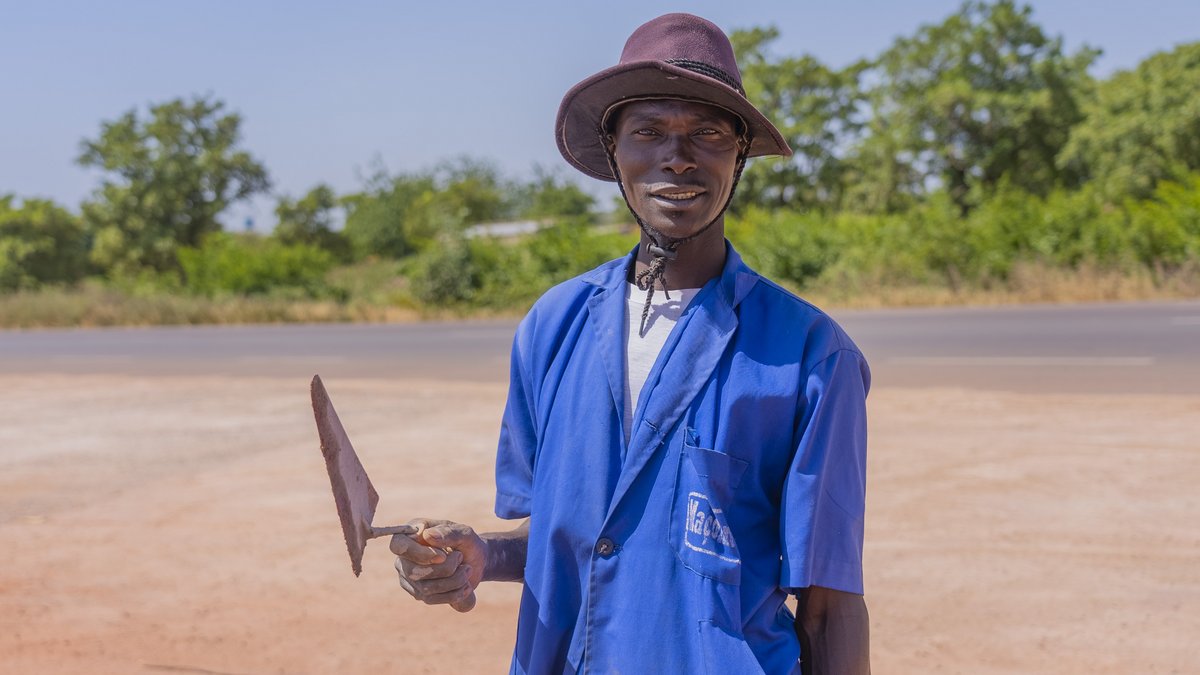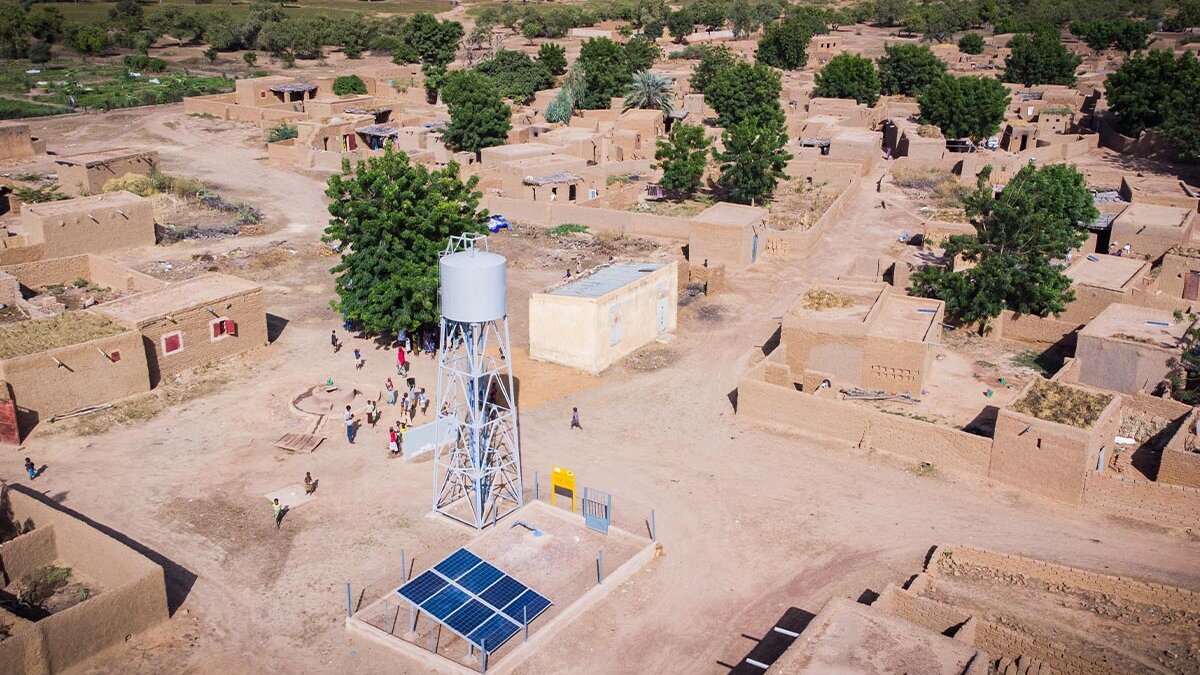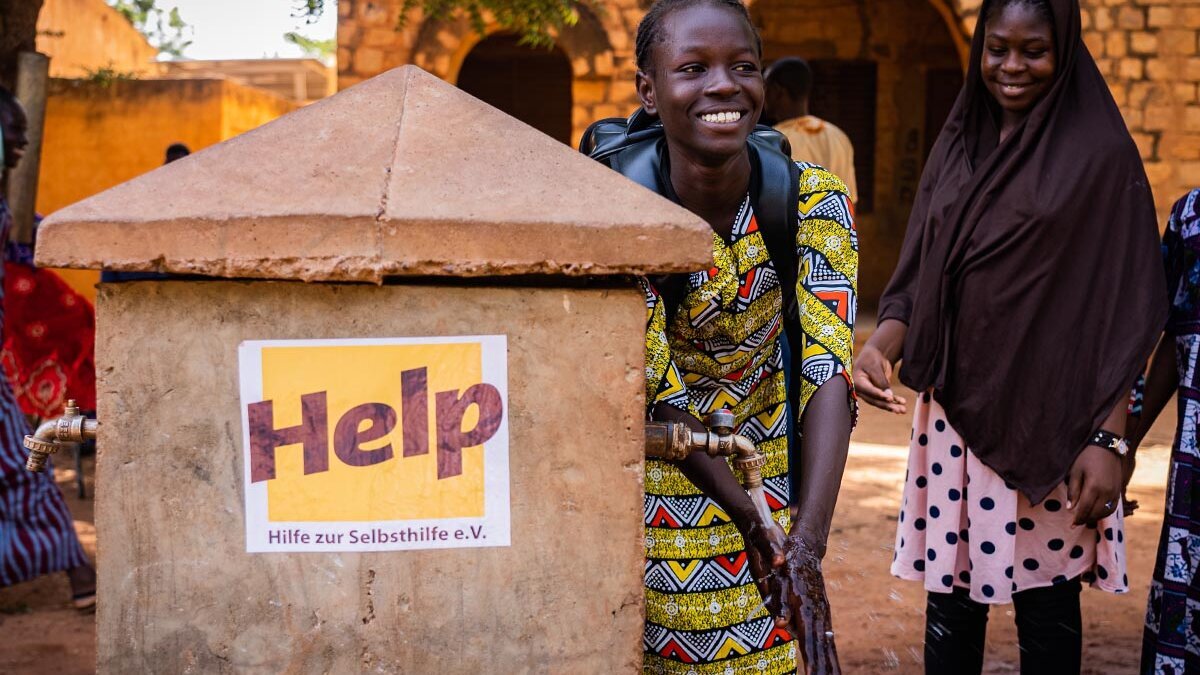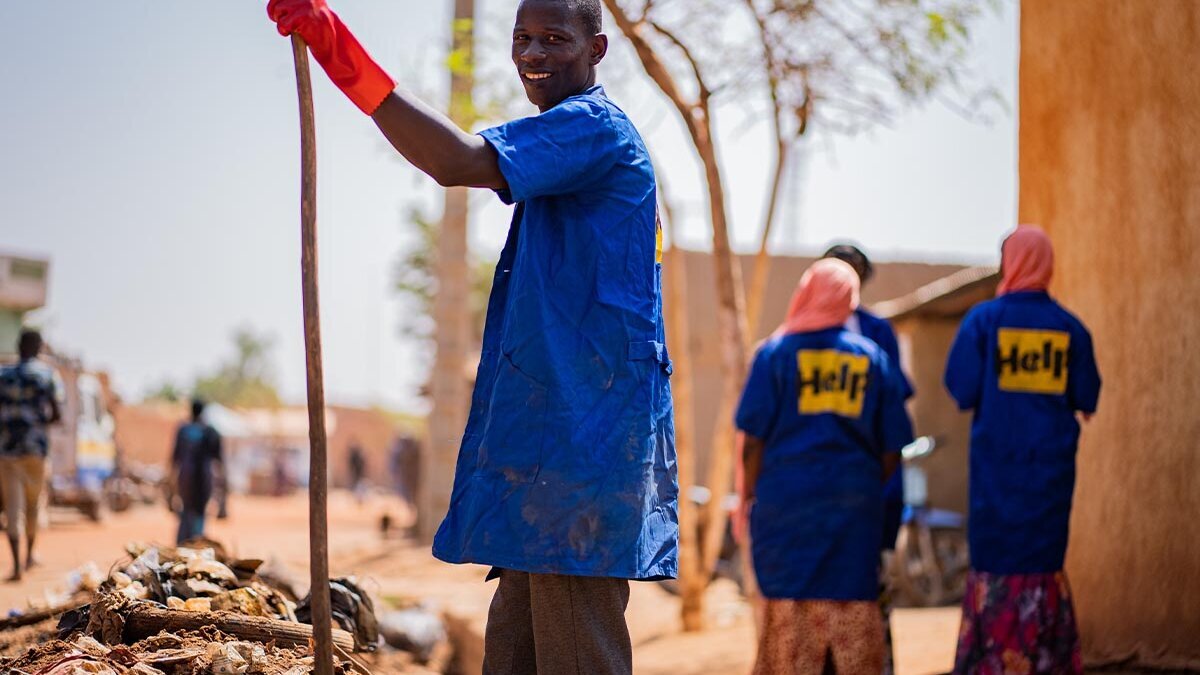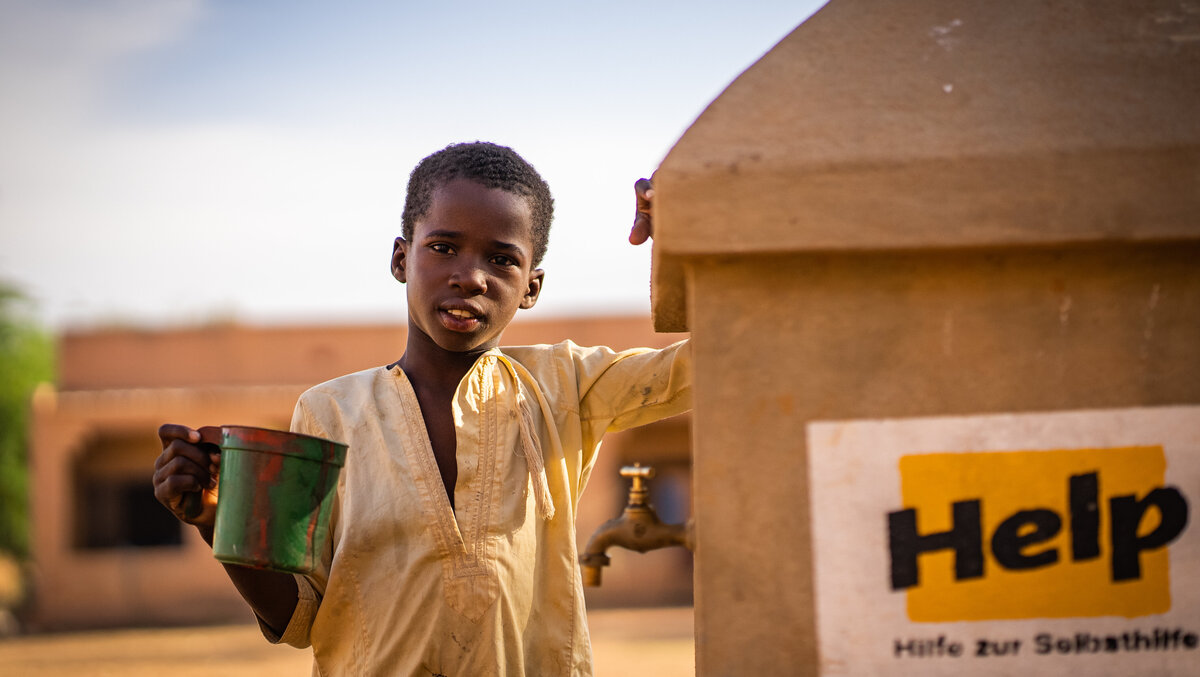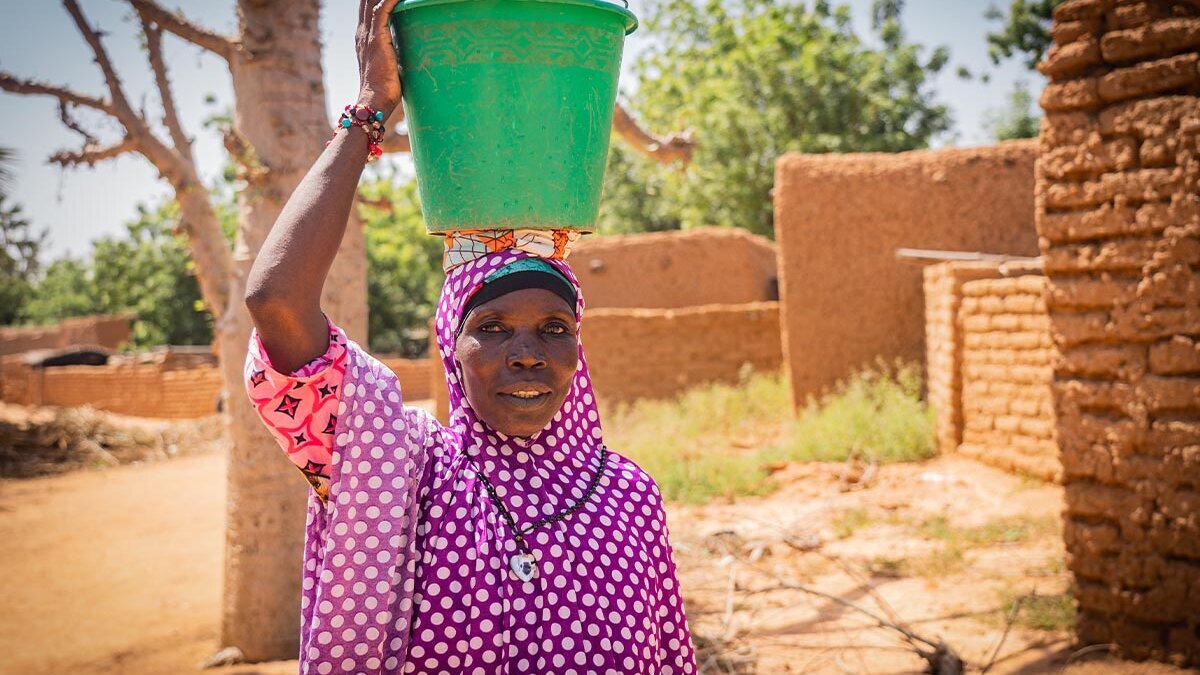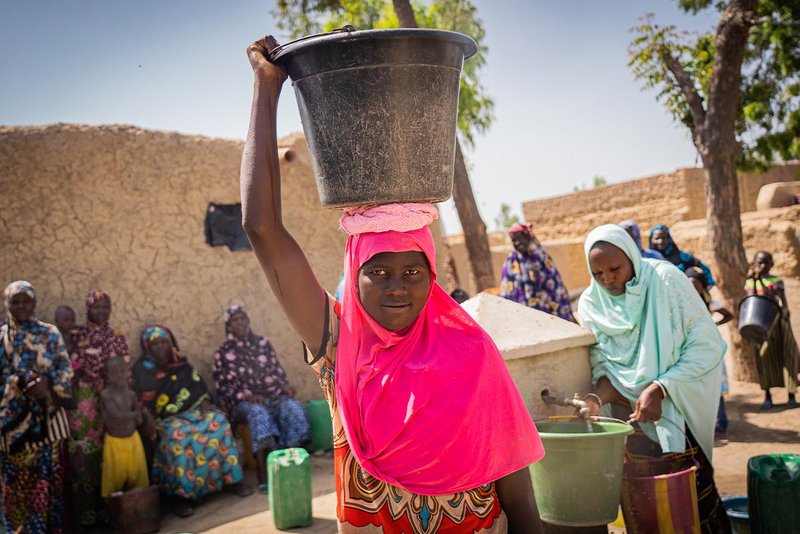Donate for Mali
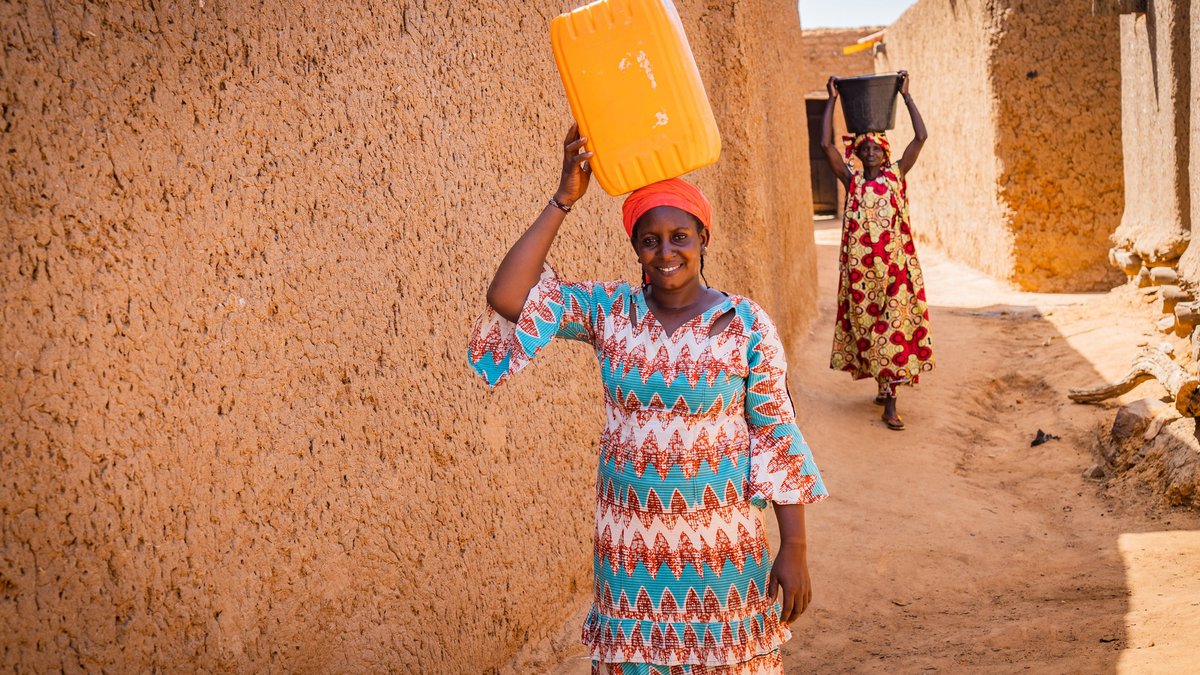
Crisis in Mali
Conflict, water shortages, hunger: Mali is a country in permanent crisis. Help has been active on the ground since 2013, improving access to drinking water, combating malnutrition in children and helping women affected by violence. We also support local healthcare.
How is Help providing support in Mali?
Help against hunger, poverty and violence
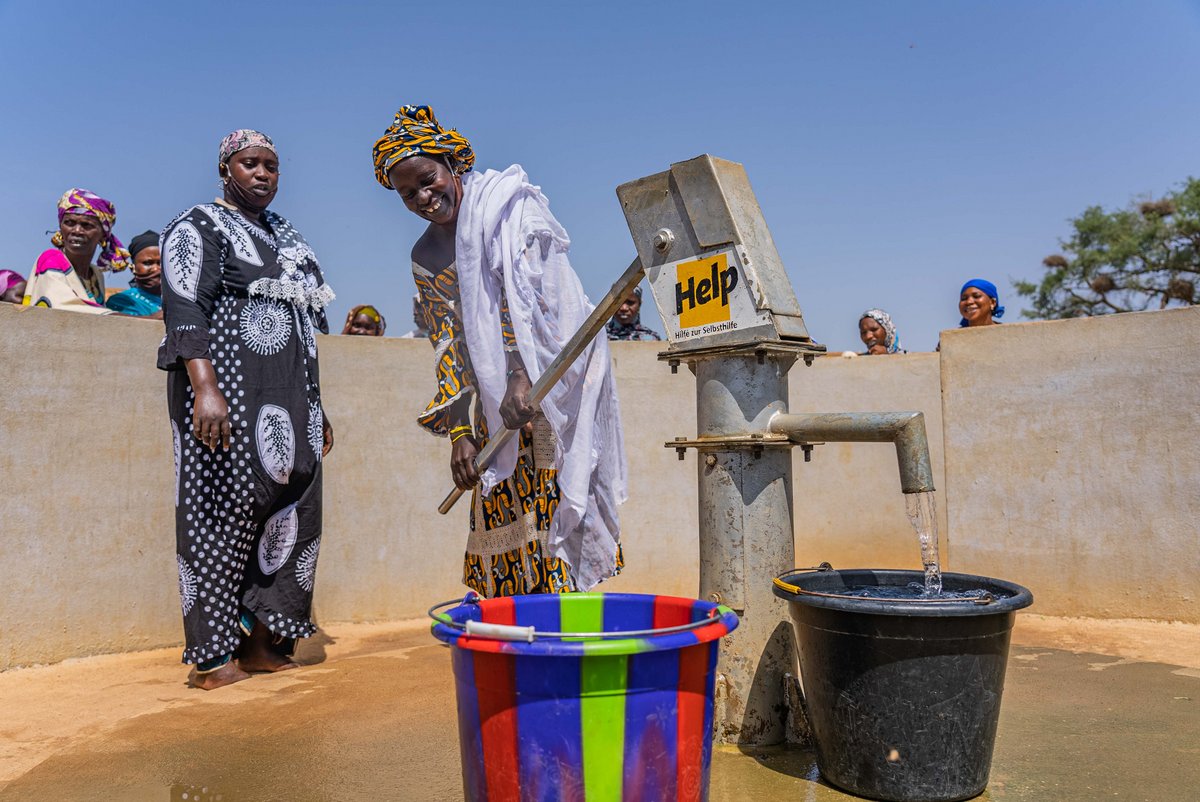
Help has been active in Mali since 2013. Our focus in Mali is on expanding the drinking water and sanitation supply and improving the health of the population.
To this end, we connect village communities, schools and health centres to water supply systems. We are promoting the construction of solar-powered wells that pump water up from the depths in an environmentally friendly way. We also provide access to sanitary facilities.
Women and children receive special support from us. We treat malnutrition in children and support women affected by gender-based violence. Help also promotes the treatment and prevention of HIV/Aids, tuberculosis and malaria, thereby increasing the chances of survival for those affected.
What is the situation like in Mali?
From democratic pioneer to starving nation
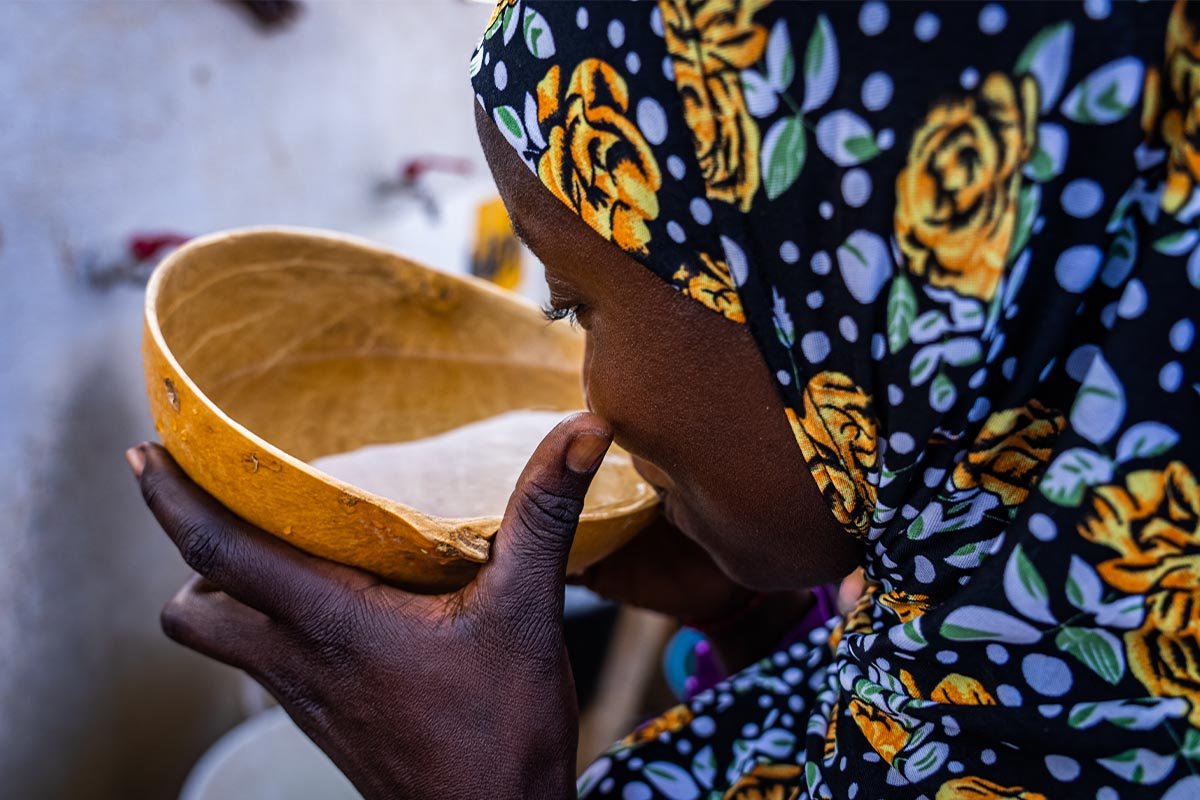
With the dismantling of the military dictatorship in 1991, a peaceful democratization process was initiated in Mali and free elections were made possible. In 2012, the tide turned: the president was overthrown and militant groups took over large parts of Mali. Hundreds of thousands of people were displaced from the north of the country and are now living as refugees in their own country. Since then, Mali has been in a crisis of poverty, hunger and displacement.
Half of Mali's population currently lives in extreme poverty. In rural regions in particular, many families do not have adequate access to water, sanitation or medical care. Due to the many displacements, many families do not have enough food to provide for themselves. Around 1.5 million people in Mali suffer from hunger.
Clean water thanks to solar power
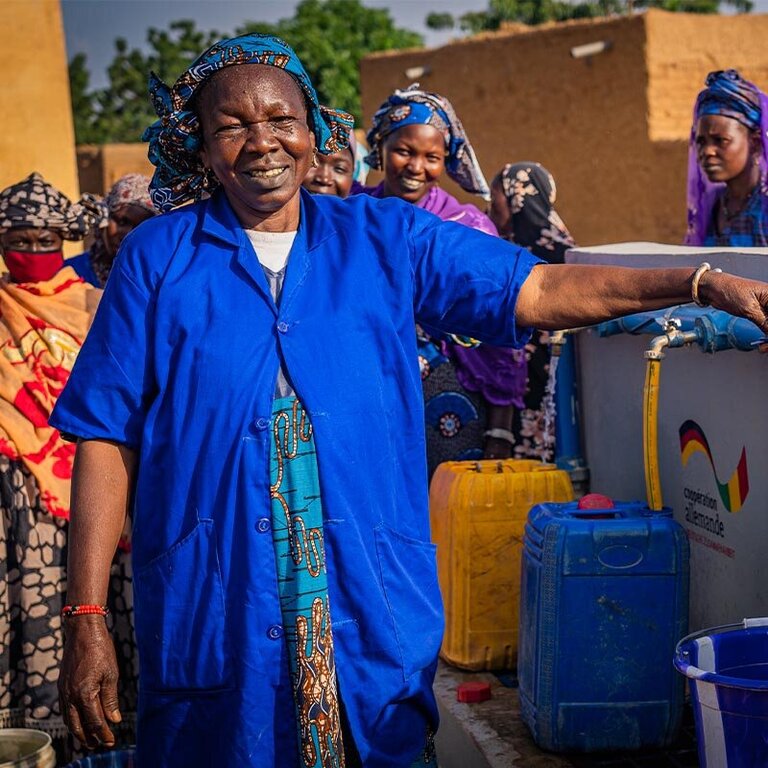
Perimpé is one of many villages in Mali where Help has installed a solar well. The water is pumped to the surface in an environmentally friendly way using solar energy and stored in a water tank. The residents can then simply fill up the water at the new water point.
To ensure the sustainability of our wells, Help trains water committees in the villages to look after the maintenance of the water points.
At the community meeting, we set the price for a bucket or canister of water at 5 CFA francs and the price for a water barrel at 50 CFA francs. This allows us to save money and build up reserves in case the water system needs to be repaired.
Oumou Cissé, Water Committee Perimpé

